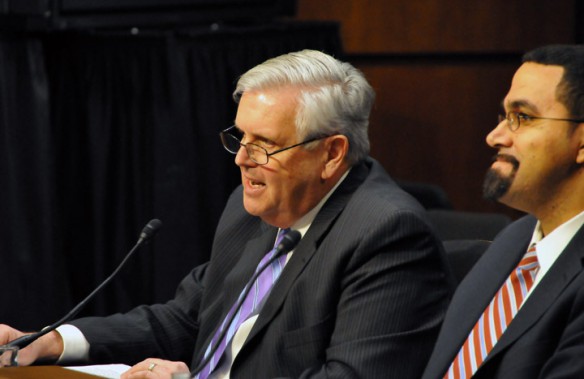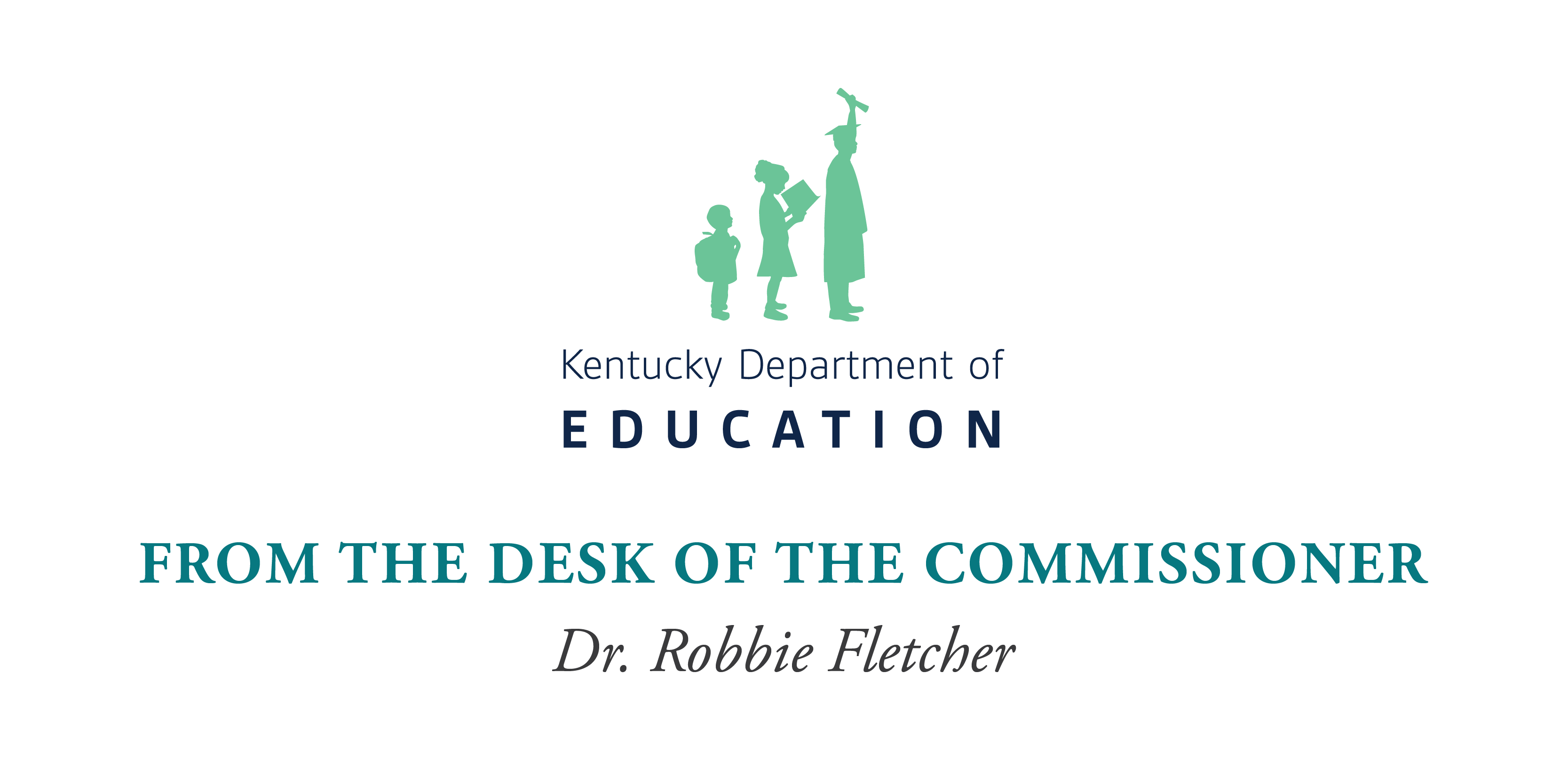
Education Commissioner Terry Holliday and New York Commissioner of Education John King testify before the U.S. Senate Committee on Health, Education, Labor and Pensions (HELP).
Today, Kentucky Education Commissioner Terry Holliday asked Congress to continue to allow flexibility on federal education requirements to enable states like Kentucky to move forward with reform efforts to best serve the needs of all students.
Holliday appeared before the U.S. Senate Committee on Health, Education, Labor and Pensions (HELP) at a hearing titled “No Child Left Behind: Early Lessons from State Flexibility Waivers.”
No Child Left Behind, the reauthorization of the Elementary and Secondary Education Act (ESEA) of 1965, was up for reauthorization in 2007. Congress has yet to act. The U.S. Department of Education offered states flexibility on the requirements of No Child Left Behind through a waiver application process. Kentucky was one of the first states granted a waiver — allowing funding flexibility and flexibility to use the new Unbridled Learning: College/Career-Readiness for All accountability system for both state and federal accountability.
In his testimony today, Commissioner Holliday said, “Kentucky completed a waiver application that built on the key components of NCLB. We kept a focus on proficiency, achievement gaps, graduation rate and annual progress. However, we moved to a more rigorous standard – college and career readiness for all students.”
The commissioner said the waivers have allowed states to escape the unintended consequences of No Child Left Behind, such as lower standards, “teaching to the test” and loss of a balanced approach to education with reduction in the arts, physical education, science and other critical subject areas.
Holliday cited early progress the state has made since the implementation of Senate Bill 1 (2009) and flexibility on ESEA – higher graduation rates and a college/career readiness rate that has improved from 34 percent in 2010 to 47 percent for the class of 2012.
He urged Congress to use the waiver process to inform ESEA reauthorization efforts and highlight the value of state flexibility in federal law.
Education Secretary Arne Duncan also testified at the hearing as did New York Commissioner of Education Dr. John King; Andrew Smarick, Bellwether Education Partners; and Kati Haycock, President of the Education Trust in Washington D.C.
A video recording of the hearing is available here.




Leave A Comment